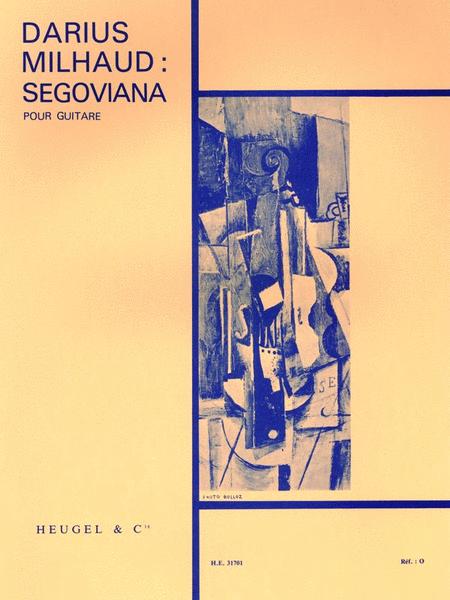Segoviana, Op. 366 by Darius Milhaud (1892-1974) for Classical Guitar – Written in 1957, this was Milhaud’s only work for guitar. Milhaud was a French composer, conductor, and teacher. He was a member of historic composer group Les Six (The Group of Six) and a very prolific composer of the 20th century. His compositional style range from modern classical works, to jazz, to polytonality. Here’s a small historical writeup via this Ricardo Gallen Album on Naxos: “Darius Milhaud belongs to a surprisingly large group of composers who each wrote but one piece for the solo guitar, along with de Falla, Ibert, Britten, Ginastera, and many others. It seems that Andrès Segovia, the dedicatee of Segoviana, never played the piece, judging by the lack of any fingerings or editorial markings in the score. Rapid melismatic flourishes punctuated by powerful chords suggest the guitar’s flamenco heritage, presented in the musical language of the composer of Saudads and Scaramouche.”
Recommended Sheet Music
Segoviana, Op. 366 by Milhaud (Heugel)
Segoviana, Op. 366 by Milhaud (Zigante)
Recommended Videos
Andrea Gonzalez Caballero on YouTube
Steve Cowan on YouTube
Marcin Dylla on YouTube






Dylla is for me who more approeches to the spirit of this work. Milhaud is the inheritor of the impresionism style thougt with intrusions in the flamenco style in this piece. Very complicated everyone likes it